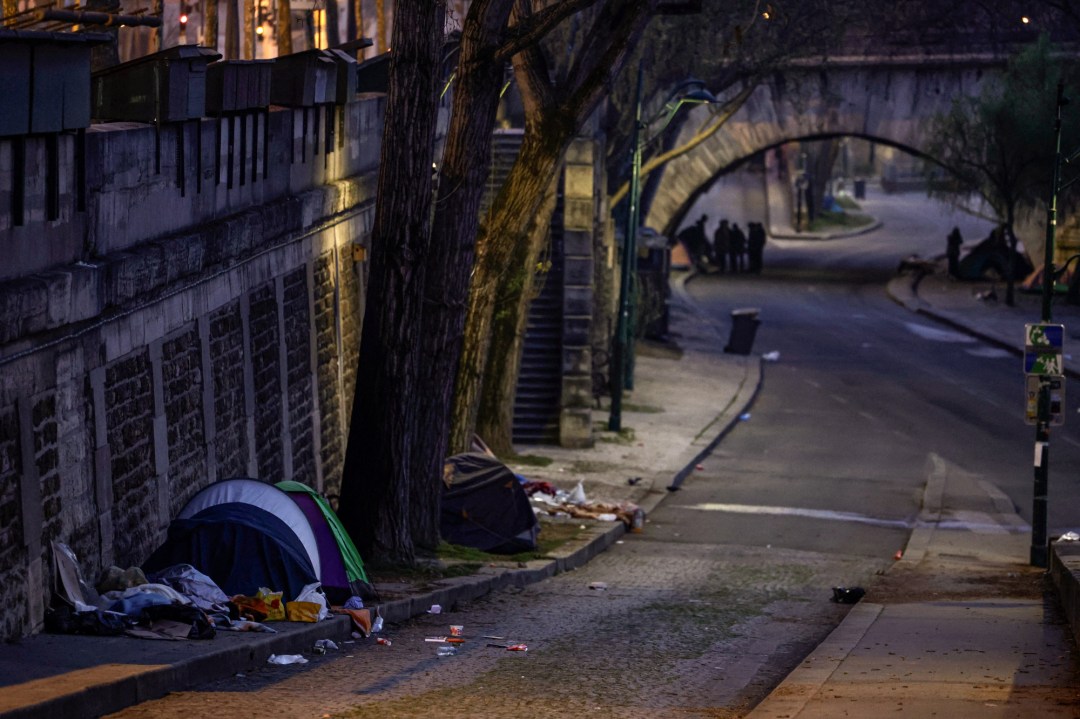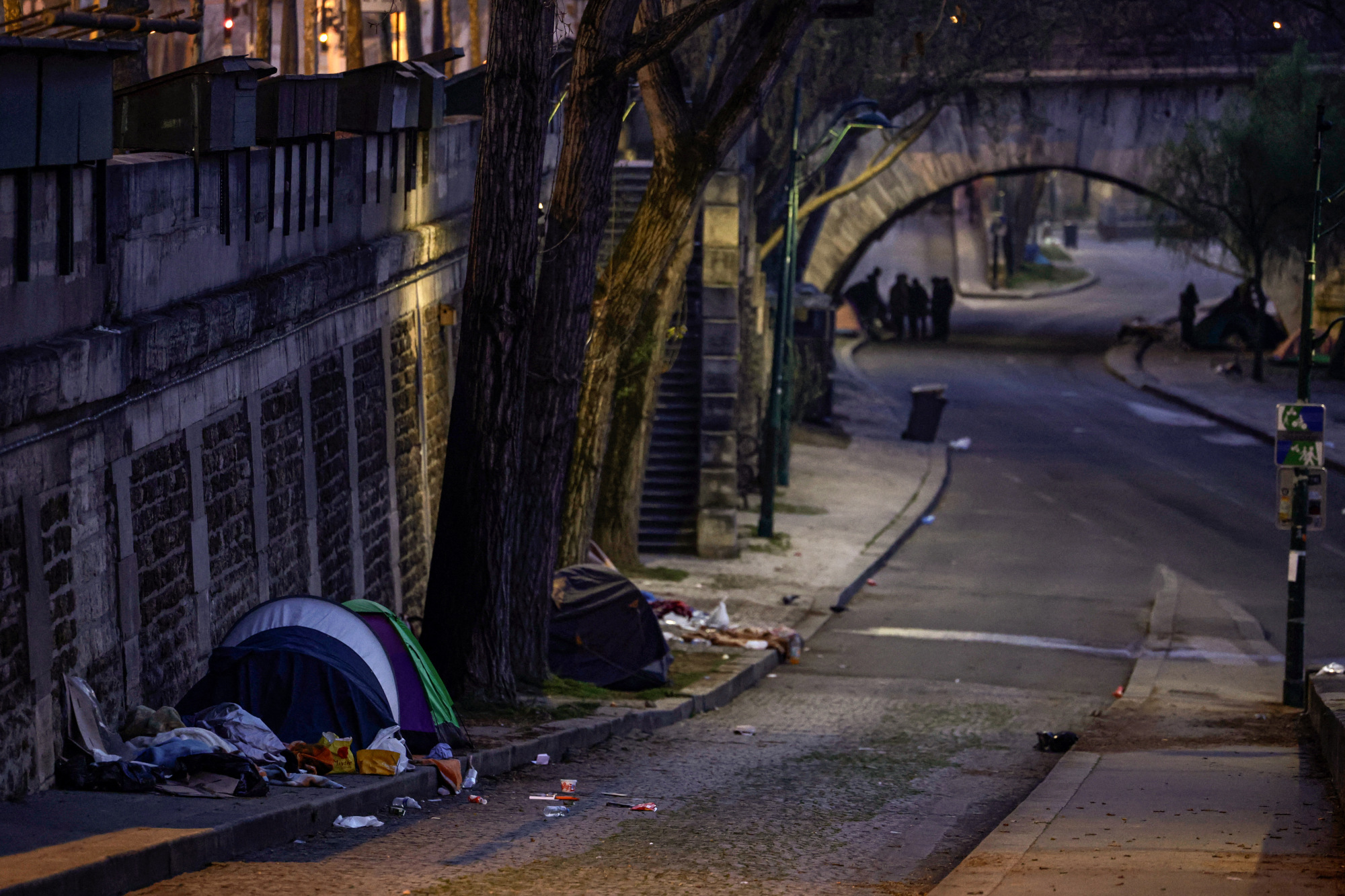The right-wing UDR group in the French parliament, led by Eric Ciotti, has called for a parliamentary commission to calculate the true cost of immigration. Ciotti is demanding a line-by-line accounting of France’s spending on healthcare, housing, education, and emergency aid for migrants, alongside their economic contributions. The French left recoiled instantly and predictably. To move the debate on, the Socialists tabled a no-confidence motion against the Bayrou government, ostensibly over pension reform, but widely seen as a bid to deflect Ciotti’s challenge. In Paris, few are fooled: immigration is the real flashpoint.
When it comes to immigration, the numbers are framed as dangerous, not because they’re made up, but because they might be true
Jean-Luc Mélenchon, the far-left firebrand and founder of LFI, thundered that Bayrou must resist ‘the creeping Trumpism of public life.’ Mélenchon is deliberately missing the point. All the right is asking for at this point is a procedural commission. It would be sober and long overdue. But for the French left, the idea that immigration might be scrutinised like any other line of public spending is intolerable. Much easier to cry racism, scream Trump, and table a motion of no confidence to distract and shut the whole thing down. When something looks threatening, change the subject.
Ciotti’s proposal may be politically explosive, but it is also needed. France’s public finances are in crisis. The deficit stands at €154 billion, and the Bayrou government is scrambling to find €20 billion in immediate cuts just to satisfy Brussels. Voters are being told they must expect austerity. The question of what immigration costs, and what it brings in, is now being posed more forcefully than ever. France’s annual bill for state-funded healthcare for migrants is now over €1.2 billion. Emergency accommodation for asylum seekers and illegal migrants costs around €1 billion a year. Add to that the costs of education, unemployment, integration schemes, housing aid, child support, and criminal justice. The numbers aren’t exactly hidden, but they’re never being added up in one place. And that, of course, is the point.
For decades, France’s political class has tiptoed around immigration, treating it as a moral question, rather than a policy one. For the left, asking how much it costs the country is considered out of line. The mere act of quantifying the impact and cost of immigration they claim invites racism. There is no other area of public spending subject to such hysteria. No one accuses the state of fascism for calculating how much the pension system costs. No one calls the budget ministry xenophobic for measuring how many billions go to education. But when it comes to immigration, the numbers are always framed as dangerous, not because they’re made up, but because they might be true.
The panic now gripping the left is not really about the commission itself. It’s about what might follow. Because if the numbers are bad, the consensus begins to unravel. For years, think tanks have insisted that immigration is a net positive, citing GDP growth and demographic renewal. But these arguments are increasingly threadbare. France has among the lowest immigrant employment rates in Europe, and those in work are often concentrated in low-productivity sectors. Immigrants contribute little in taxes and draw heavily on expensive social services. A recent study by the Observatoire de l’immigration et de la démographie argued that immigration is a long-term fiscal burden, not a benefit at all. They conclude that immigrants leave the workforce earlier than previously assumed, and with much higher dependency needs.
Ciotti’s proposal is dangerous to the establishment. It threatens to turn immigration into a budgetary issue, at a time that the focus will more than ever be on the budget. It will become increasingly difficult for the left to virtue signal. In the upcoming budget debate, the right-wing bloc and the Républicains plan to treat immigration as a line item. Something with a cost, a trade-off.
Marine Le Pen has repeatedly framed immigration as a ‘financial black hole’ for the French state, singling out programmes like free healthcare for undocumented migrants as an unjustifiable burden on the taxpayer. Jordan Bardella has also repeatedly called for an audit of public spending on immigration and integration. For the time being they’ve stopped short of endorsing Ciotti’s commission, but the RN has long championed the idea that immigration is not just a cultural or security issue but has a cost in fiscal terms.
The left senses this shift and is now desperately trying to contain it. Hence the vote of no confidence. It’s unlikely that the motion will pass at this point, it’s unclear for the time being whether the Républicains will support it. But it will allow the left to take back control of the conversation. To frame Ciotti and his allies as demagogues, and Bayrou as weak for tolerating their rhetoric. In effect, the motion of no confidence is a warning shot to the centre.
Bayrou, meanwhile, is trying to keep his government afloat. He’s weakened by the coming budget shortfall. Austerity is looming. Unions are calling for strikes. Bayrou can’t afford to alienate the right, which he depends on for votes. But neither can he be seen to indulge their demands, lest he lose control of his own centre-left flank. So he’s hesitating. And while he hesitates, the right advances with growing popular support.
The question now is whether anyone in government is honest enough to admit the true cost of immigration. Ciotti has placed that question squarely on the table. The left wants to kick the table over. The coming weeks will reveal whether the Bayrou government has the nerve to let the immigration debate happen, or whether it bows once again to the forces of strategic amnesia. The numbers, meanwhile, won’t go away.







Comments